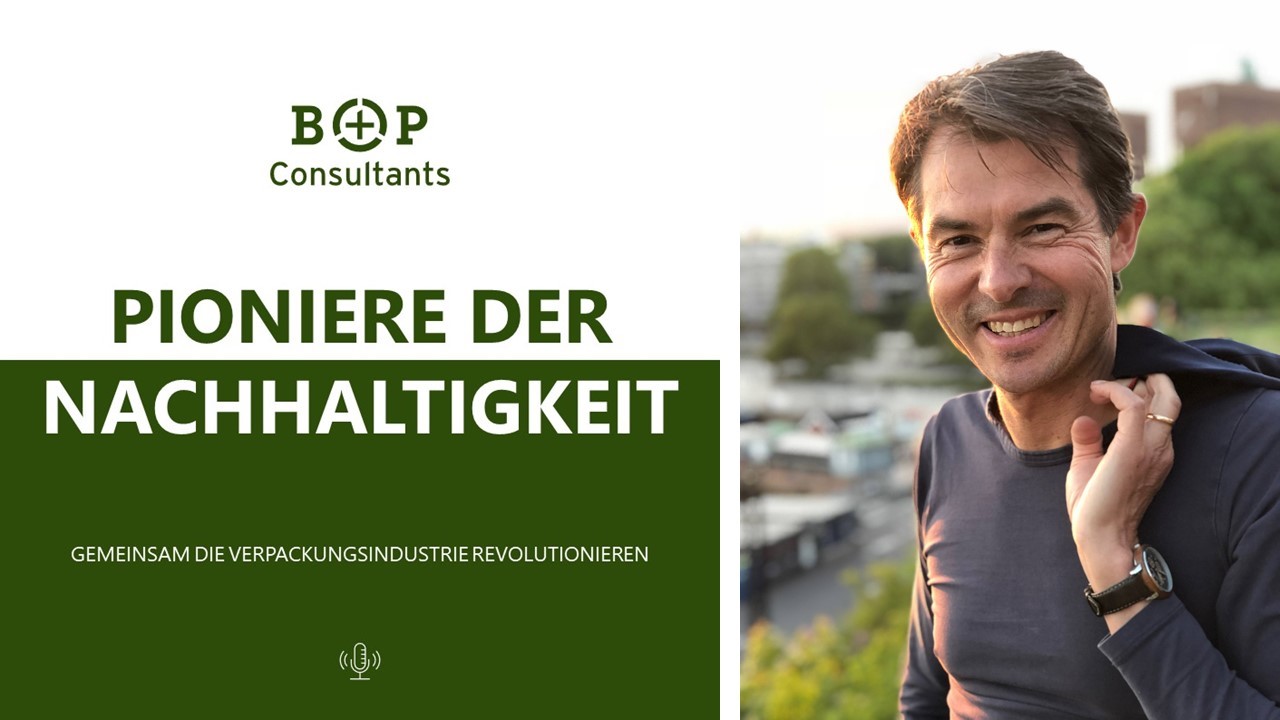In our expert podcast, Matthias Giebel, Partner for Sustainability & Innovation at B+P Consultants, talks to circular economy luminary Martin Stuchtey. The professor for resource strategies and management at the University of Innsbruck is the founder and managing partner of the think tank SYSTEMIQ. We wanted to know from him what innovations are necessary for the circular economy to succeed in the packaging industry? The question is elementary, because currently the prospects are (still) rather bleak.
In the second edition our expert podcast series (German only), we turn our attention to the key topic of our industry: reaching the circular economy turnaround. Although important steps have already been taken, the turnaround has not yet been achieved. What’s more, the current momentum is not sustainable. More needs to be done, otherwise the set and necessary waste targets will not be achieved.
Gloomy prospects
If things continue on the scale and pace they have over the past 5 years, the annual influx of plastic into the oceans will almost triple by 2040. With a projected range of 23 – 37 million tonnes per year, the average is an unacceptable 30 million tonnes. This is equivalent to 50 kg of plastic per metre of coastline worldwide! The amount of plastic in the oceans would thus have quadrupled compared to today.
Reaching a turnaround in packaging within 10 years
- Design for recycling – and do it consistently!
- Use other materials. Specifically: fewer laminates, more mono-materials, more rigid packaging!
- Clear and intelligent frameworks, such as
-
- CO2 tax
- Minimum quotas in combination with intelligent EPR (Extended Producer Responsibility) systems such as bonus/malus systems that rely on a dynamic system and lead to a “Race to the Top”. Such a system would reward companies that have a higher recycled content ratio compared to the competition with bonuses.
Ways and measures
- Transparent and harmonised recyclate standards that help us keep material flows together and materials in the loop.
- New materials, whereby paperisation and biogenic plastics, despite all justification, cannot be assessed as a beatific solution. Plastics are not the problem per se. The sticking point here is “single use”, half of which is currently incinerated after use. In the process, goods worth between 3 and 4 billion euros are lost every year.
- Reusable packaging is an exciting model that can lead to new, innovative business models, especially in the B2B sector. Seen in this light, reusable is not only an opportunity for waste avoidance and climate protection, but also an innovative business model. As an example here: XaaS (Everything as a Service), where products down to molecules are offered as a service.
About Martin Stuchtey
Martin Stuchtey is Professor for Resource Strategies and Management at the University of Innsbruck and founder and managing partner of SYSTEMIQ. SYSTEMIQ acts as a think tank and investor in the fields of sustainable land use, circular industrial systems and renewable energy systems to transform market dynamics and business models.
How to access the podcast:
You can choose to listen to the podcast (German only) via the following channels:

